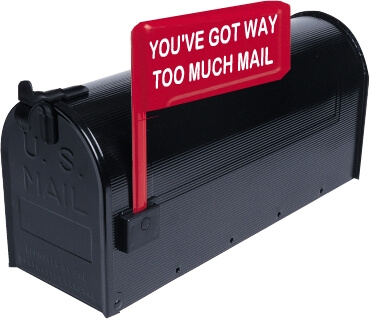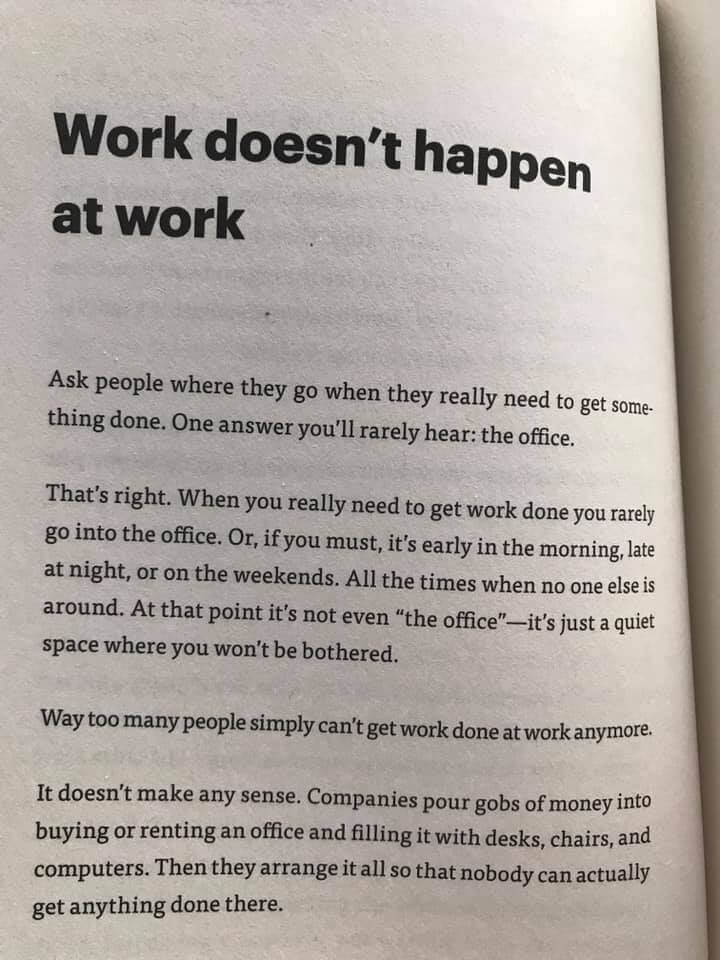You Suffer From Email Addiction, And It’s Killing Your Success
Email…
It’s introduction made us as a society far more productive than ever before. It was amazing. One day we were licking stamps. The next day we now had the ability to get messages read clear across the world in an instant, for free. It was awesome for the first five years or so of its existence.
Fast forward to now… and OMG…
We’re literally email addicts (by definition). We’ve become dependent and emotionally involved with our inboxes, and its a reality that many of our lives would not operate as we know them without the frequent use of this game changing technology.
Now, don’t get me wrong. Email isn’t all bad. In fact, I owe a lot of my success to this very communication medium, but I figured out one day that I was addicted to it, and it was killing my chance to be successful. After I recognized that and got on the road to recovery, I became a much more effective person.
Whether you’ve recognized it or not yet, I can almost tell you with 100% certainty that email addiction is happening to you. Until you recognize your dependency on it, and actively decide to do something about it, you’re going to be a reactive slave of your inbox – and being reactive might as well be called a productivity and time management sin.
The Pitfalls of a Reactionary Mindset
That’s the main problem most people have with email – being reactive.
They wait for email to come in, then they do what the it commands them to do. Then onto the next one, and the cycle continues.
Now of course there is a fair amount of work that wouldn’t get done without some email communication, and that’s fine, but I’ll tell you right now if all you do on a daily basis is react to the emails in your inbox, you’re not going to climb the corporate ladder very much, nor are you going to have any kind of entrepreneurial success.
You’re always going to be waiting on people (or email) to tell you what to do.
Beating Email Addiction
Now what I could do is write out a list post of tactics to tame your email like ditching alerts, setting an email schedule and what not, but all that’s going to do is help you for three days, then you’ll go back to your normal habits. I’ll help you out with that after you understand the psychology behind your addiction.
For you to truly beat your email addiction problem, you need to first understand what’s going on, how it’s negatively affecting your life, and how things can be much better with a change. I touched on this a bit earlier, but it was vague, so check out the following scenario (which I’m willing to bet is normal in most people’s lives) to explain more clearly.
- You start work in the morning and the first thing you do is open your inbox
- Then, depending on your job, you spend about 30 minutes to an hour answering emails until you either need more coffee, have a meeting, or just need to stretch it out a bit
- You come back to your desk, and answer more emails, and maybe get a couple of other small tasks done in the next couple of hours
- Then you spend the rest of the day either in meetings, on the phone, or continuing to be a slave of your incoming email, checking it multiple times every half hour and jumping on it every time you hear that new email chime. You got it. You actually get emotionally stimulated when you see that new email come in. A classic sign of addiction.
So have you noticed what’s going on here?
You’re being completely reactive to your email. It literally runs your entire day. As long as you’re reacting to what’s in your inbox:
- You’re not being proactive
- You’re not planning
- You’re not organizing
- You’re not leading
- You might not even be thinking!
Now all of that might not sound to terrible on the surface, but when you step back and look at the bigger picture of what this kind of routine does to you, it spells disaster for success. It can start to ingrain completely reactionary habits within your mindset. It can cause you to be very dependent on external stimuli to get anything done. And when you’re dependent on external stimuli to get anything done, that means you’re going to have a much more difficult time becoming a leader.
The Benefits of Being Proactive
Now picture basically the exact opposite of the routine I listed above. In this scenario you’re in control of your day.
- You start your day off by prioritizing your most impactful tasks that need to be completed
- You get the ball rolling on those tasks, full of excitement that they’re your projects
- You answer your email when you’ve completed your management, leadership, organizing, and enterprising type tasks
- You still respond to people when needed to be an effective communicator, but you don’t let your email control you
- You get a lot more done!
Managing your email like this allows you to keep control so you don’t get sucked into those urgent type of reactionary tasks that are mostly unimportant. It allows you to better organize your time so you can get work done that makes an impact for your organization. And it helps further morph your mind into a proactive state, allowing you to become a much more effective person, which can help you move further down your own road to success.
More to come on this subject in the future. It’s a big one to maintaining an effective routine. For now – let me know what you think!
To Your Success!
Cody



